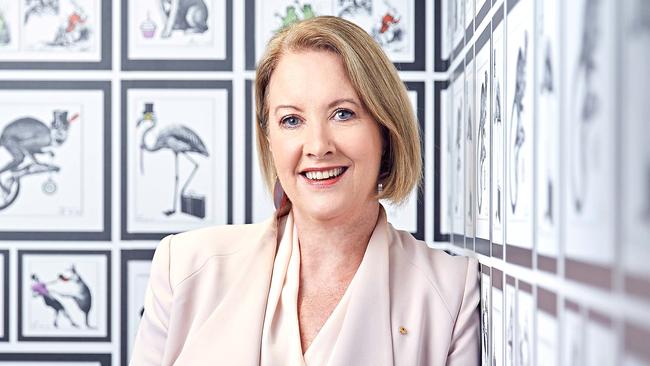Q&A: Elizabeth Broderick, women’s rights campaigner, 59
Women’s rights campaigner Elizabeth Broderick on why gender equality is ‘in a period of major regression’ around the world.

Is your generation any more or less passionate about gender equality than the generations born after you? I think women today are equally passionate but younger women are more likely to coalesce around particular issues rather than the women’s movement itself. There’s a reluctance to call yourself a feminist because feminism has become more polarised as an anti-man movement when it’s not that at all. It’s about recognising that when women have equality, everything lifts.
Tomorrow is International Women’s Day. Why do we still need this day? Gender inequality is pervasive in pretty much every nation in the world. Twenty five years on from the Fourth World Conference on Women in Beijing, which was probably a high point, gender equality has either stalled or in some regions of the world it’s actually regressed. Some gender courses are being eliminated at universities. In the past year in the US there’s been dozens of new state laws restricting women’s access to reproductive health services. We’re in a period of major regression or roll back; women’s rights are often seen as progressive Western values rather than universal human rights.
You’ve looked into gender policies at a range of organisations, from Qantas to the Australian Federal Police and the Australian Defence Force. How is it that you still have so much work to do? When you’re trying to create a more inclusive organisation, you’re dealing with human beings and mindsets and emotions, so it’s intense. From the minute you’re born you start to develop views about the place of men and women in the world. We’re trying to shift some deeply held belief systems and that takes time.
Is there a risk of making so much noise that people stop listening? Gender fatigue? It’s where we run the same arguments over and over again and expect to get a different response. You can put all the data you want in front of policy makers, parliamentarians, leaders of organisations, but it’s not until you engage their hearts as well as their heads that you are going to see a shift. For me it’s all about storytelling – bringing in someone like Rosie Batty – and then they step up to action.
How does Australia stack up in terms of tackling domestic violence? We now recognise it as a workplace issue: giving paid domestic violence leave, validating those living with it and moving offices if necessary. It’s one place where Australia is listening. When I go internationally and speak particularly to the private sector about domestic violence, it’s like whoa, that’s a private matter, it’s got nothing to do with our workplace. So we’re quite evolved here in our thinking on that.
You’ve spent a lot of your career pushing for gender equality. When will you be out of a job? I wish it would be some time soon. Sometimes I step back and remind myself of the life my grandmother had. She was born in the early 1900s; she had to stop work when she got married. I look at my own mother – she worked after she was married but she was not able to have a strong say in the life that she wanted to have. And I look at my life. When you look over the generations we are making progress, even though it feels frustratingly icy looking at it moment by moment.
Elizabeth Broderick was Sex Discrimination Commissioner from 2007-15. Since 2017 she has been a United Nations Special Rapporteur and Independent Expert on Discrimination against Women.




To join the conversation, please log in. Don't have an account? Register
Join the conversation, you are commenting as Logout